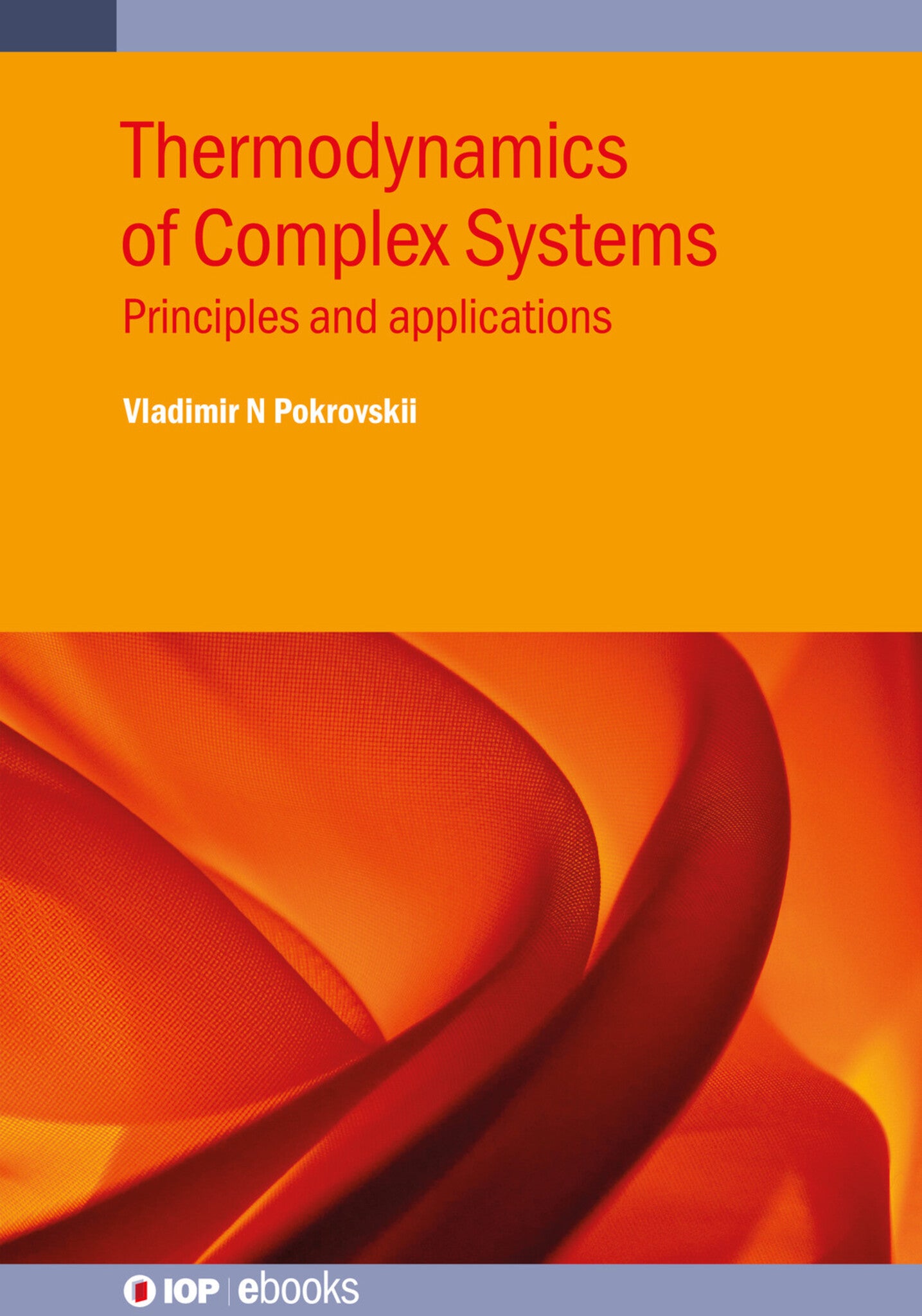We're sorry. An error has occurred
Please cancel or retry.
Thermodynamics of Complex Systems

Some error occured while loading the Quick View. Please close the Quick View and try reloading the page.
Couldn't load pickup availability
- Format:
-
03 August 2020

This text provides a concise introduction to non-equilibrium thermodynamics of open, complex systems using a first-principles approach. In the first chapters, the principles of thermodynamics of complex systems are discussed. The subsequent chapters apply the principles to the dynamics of chemical reactions and complex fluids, growth and development of biological organisms, and the dynamics of social structures and institutes. The final chapter discusses the principles of science as an artificial system.
The book is a valuable reference text for researchers interested in thermodynamics and complex systems, and useful supplementary reading for graduate courses on advanced thermodynamics, thermodynamics of non-equilibrium systems and thermodynamics of complex/open systems.
Key Features
- Provides a concise introduction to non-equilibrium thermodynamics of open complex systems, using a first-principles approach
- Discusses thermodynamics as the universal tool for the description of reality
- Looks at complex systems, such as biological organisms, populations and subsystems of human society from the perspective of thermodynamics
- Covers principles, applications and statistical interpretations

SCIENCE / Mechanics / Thermodynamics, Thermodynamics and heat, COMPUTERS / Data Science / Neural Networks, Neural networks and fuzzy systems

For later undergraduate students and researchers in the physical sciences, who are knowledgeable of and interested in thermodynamics, and in the associated description of a complex system through the interaction of its microscopic constituent elements, the book offers good instruction. In order to gain most from the mathematical treatment, readers benefit from knowledge of tensor calculus. For those interested and for more advanced readers, the footnotes provide a guide to more complex ideas, such as aspects of microphysics.
Jack Reid, Contemporary Physics, May 2023



